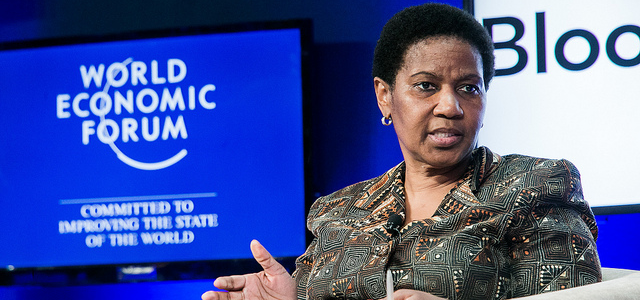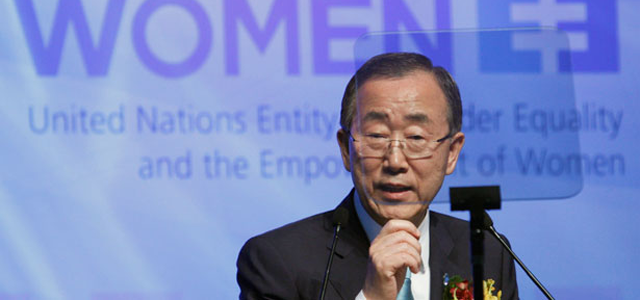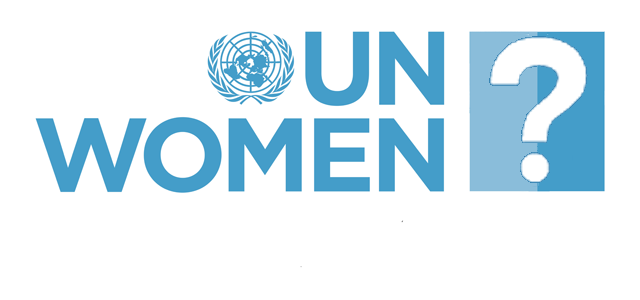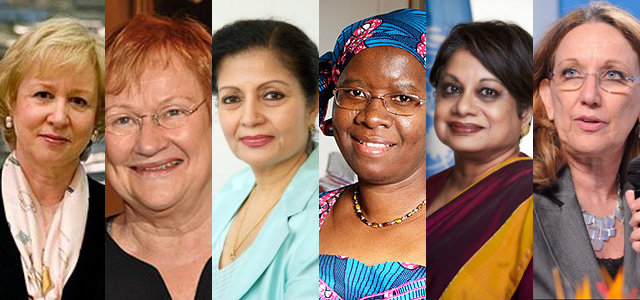In yesterday’s Turtle Bay, Colum Lynch ponders whether Michele Bachelet, the new head of UN Women, could be the first female Secretary General, but his overall argument seems a bit weak and unconvincing to me.
Her decision to take the women’s equality post is fueling speculation among U.N. diplomats that she may be positioning herself for another top U.N. job, and perhaps even a run for secretary-general after Ban retires.
It is not out of the realm of possibility that Bachelet might seek the top post, but there is nothing other than “speculation” that suggests she’s interested in it. In fact, earlier this year, she expressed strong hesitancy at taking the UN Women’s post as she wish to stay involved in Chilean politics. A sudden realization that becoming head of UN Women could lead to the 38th Floor seems to severely underestimate someone of Bachelet’s political intelligence and savvy.
Lynch recalls that another potential female candidate has been suggested last year. Helen Clark, former prime minister of New Zealand and current head of UNDP, was mentioned as a possible replacement for Ban in 2011 in the infamous memo from Norwegian diplomat Mona Juul that was leaked last year. Clark’s name was also among over two dozen which the group Equality Now felt were qualified for the post in 2006. She denied discussing a run at the post with Tony Blair in August 2006, and her chances were always a (very) long shot given China’s role in ensuring only an Asian would be seriously considered, regardless of gender. Even supposing Ban’s dismal performance costs him a second term, China will never vote for a someone from WEOG to replace him, and no political spin to suggest New Zealand is geographically in Asia will place it there politically.
To place these women in the position of Secretary-General, Lynch has to rely on both Ban getting a second term and a continuation of the regional rotation system past 2016. He argues from history that it will be WEOG’s turn to propose candidates following Ban – suggesting this would be Clark’s chance – but then waffles on it by pointing out that three Secretaries-General have come from that region already, suggesting Bachelet (from the Latin American & Caribbean group, or GRULAC) could get a shot at it in 2016. They are obviously qualified and viable candidates, but Lynch’s arguments just don’t make the case for them.
That said, there does appears to be a emerging, and somewhat compelling, pattern that might suggest a Bachelet or Clark candidacy – and it’s not due to their gender.
Both Bachelet and Clark are former heads of government. As are two others candidates rumored to be weighing a run for the top UN job – President Luiz Inácio Lula da Silva of Brazil and former Australian Prime Minister Kevin Rudd (who has recently taken on a high power position on a UN climate panel and, and as newly appointed Foreign Minister, will address the UN General Assembly next week in place of Prime Minister Julia Gillard).
No previous Secretary General or even viable candidate for the job has ever been a head of government prior to assuming the post. (President Vaira Vike-Freiberg of Latvia’s candidacy in 2006 was always destined to be vetoed by Russia and China.) For Bachelet, Clark, Lula or even Rudd to be suggested as viable candidates for Secretary General is a significant development in how the office is perceived. Other than Kofi Annan, all former Secretaries-General were (merely) heads of their respective UN delegations at some point either immediately or shortly before being appointed to the post. None of them had been their country’s head of government. A campaign by any of these four, would change that. Rather than being the “humble civil servant” as Ban has described it, being Secretary General could be a role to which even Presidents and Prime Ministers are aspiring.
It will also further, and perhaps disconcertingly, encourage that future candidates for the job will originate from politically and economically stronger member states. All of Ban’s predecessors were chosen in part because they originated from countries seen as “middle-powers” – mostly neutral in Cold War geopolitics and far from economic powerhouses. In contrast, Ban served as foreign and trade minister of the 11th strongest economy in the world. Second-place finisher in 2006 Shashi Tharoor, though not involved in national politics, was nominated and actively promoted by India, the 12th strongest economy. Both President Vike-Freiberg and Sri Lanka’s candidates complained about this unpleasant handicap in 2006.
This evolution is likely to strengthen if Ban is reappointed to a second term and continues to perform badly. The more powerful governments will eventually acknowledge the need for someone who can work more decisively with national governments (think G20 more than P5), someone who is as much General as Secretary and who has the national executive experience to pull it off. Bachelet, Lula and Rudd each come from G20 member states; Bachelet’s Chile and Clark’s New Zealand are within the top third of world economic output. All continue to have meaningful international influence on critical global issues.
Could any of them pull off a upset of “Asia’s turn” and replace Ban in 2011? It would seem unlikely given China’s likely continued insistence on the regional prerogative. But a head of state, particularly one with a recognized global influence, might be able to challenging the regional rotation scheme, and as noted before, a strong showing by Lula perhaps could shift regional loyalties sufficiently to encourage a Chinese abstention. A more likely option, of course, would be a comparable Asian (recent) head of government who could step in as a viable compromise candidate. Any takers?
That heads of governments are now seen as viable candidates should be closely monitored by serious observers such as Lynch. The next Secretary General is likely to chosen less for her gender than for the the power and influence she brings to the job.




